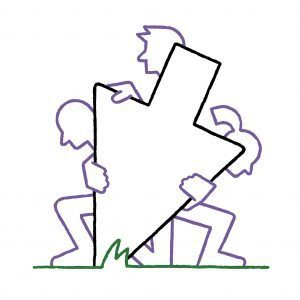Liza Featherstone in the New York Times:
 Upper-middle-class professionals love data. We tend to think that the smug, smart people who run companies like Google and Uber have some secret knowledge; we even give them our personal information, uneasily, but ultimately with a bit of a shrug. We’re seduced by similar smug, smart, supposed innovators hawking data’s potential to revolutionize health care and education. We assume technology and the information it yields is making everyone’s life easier, freer and more comfortable.
Upper-middle-class professionals love data. We tend to think that the smug, smart people who run companies like Google and Uber have some secret knowledge; we even give them our personal information, uneasily, but ultimately with a bit of a shrug. We’re seduced by similar smug, smart, supposed innovators hawking data’s potential to revolutionize health care and education. We assume technology and the information it yields is making everyone’s life easier, freer and more comfortable.
Virginia Eubanks begs to differ, with the authority to do so. For the poor, she argues, government data and its abuses have imposed a new regime of surveillance, profiling, punishment, containment and exclusion, which she evocatively calls the “digital poorhouse.” While technology is often touted by researchers and policymakers as a way to deliver services to the poor more efficiently, Eubanks shows that more often, it worsens inequality. Data can’t provide what poor people need, which is more resources. Indeed, as with the 19th-century poorhouse, she argues, the shiny new digital one allows us to “manage the individual poor in order to escape our shared responsibility for eradicating poverty.”
Although Eubanks is an activist and a political-science professor (at the University of Albany, SUNY), “Automating Inequality” is a work of investigative journalism. She travels to Indiana, Pittsburgh and Los Angeles, conducting illuminating interviews with administrators, social services staff and, most powerfully, people unlucky enough to reside in the digital poorhouse.
More here.
